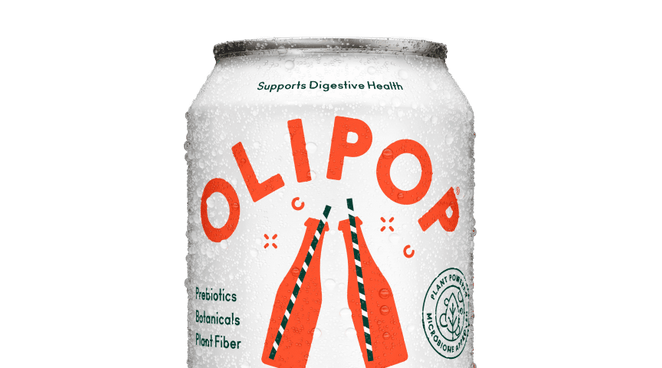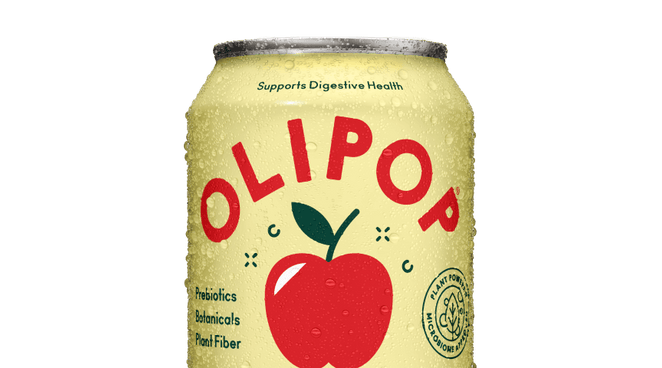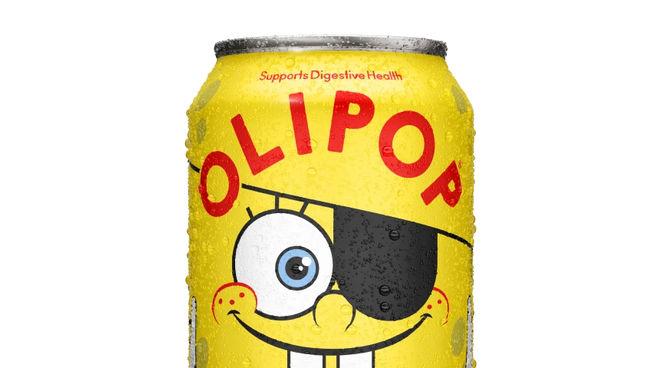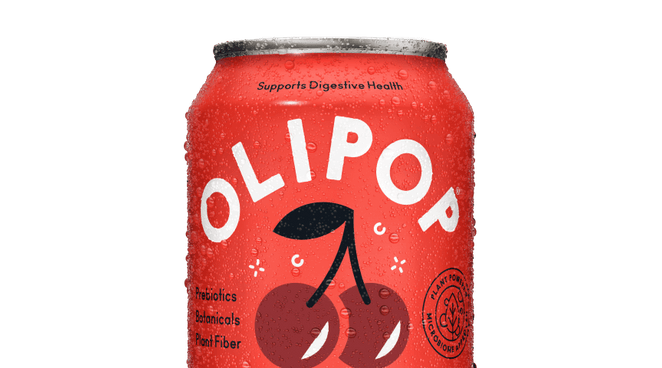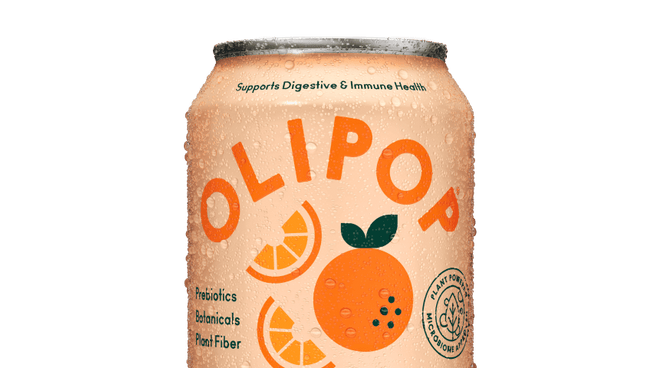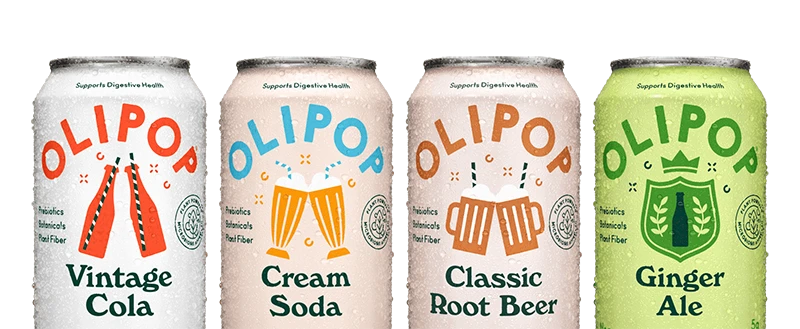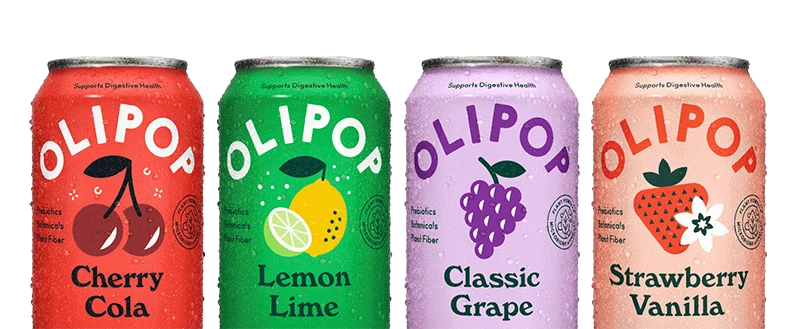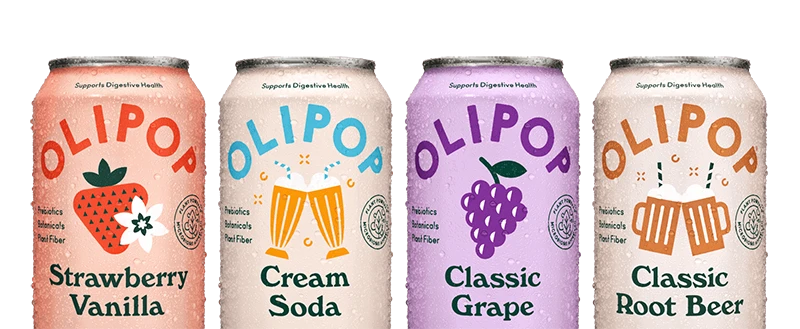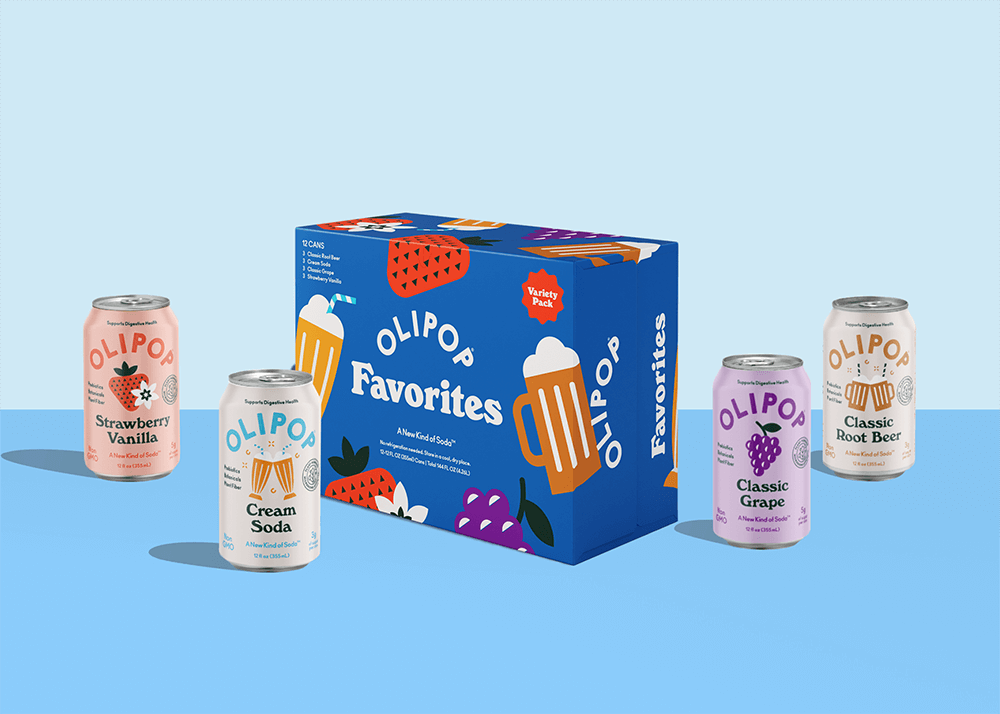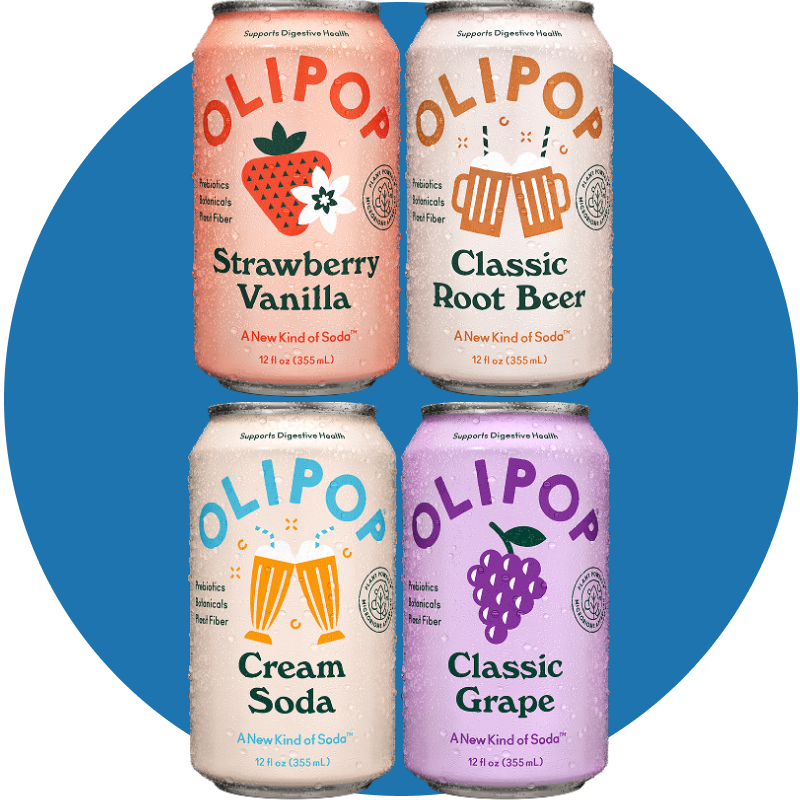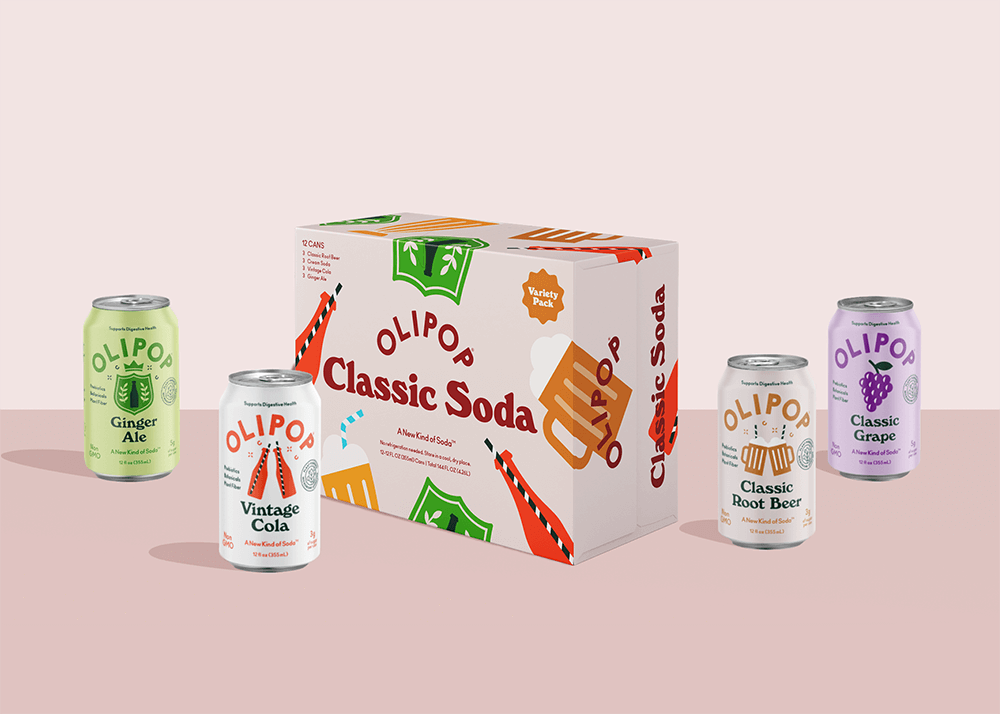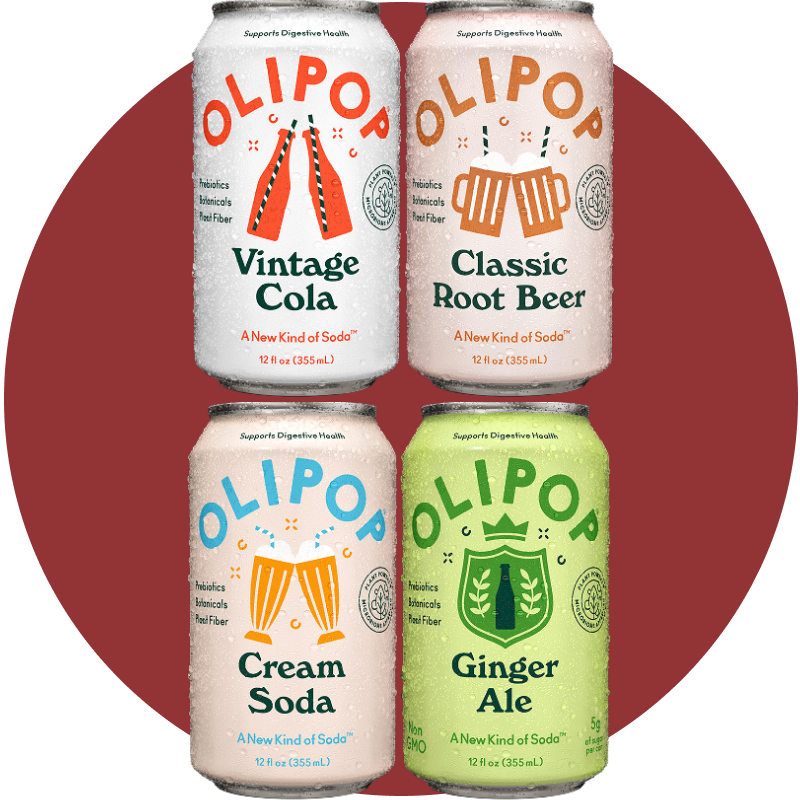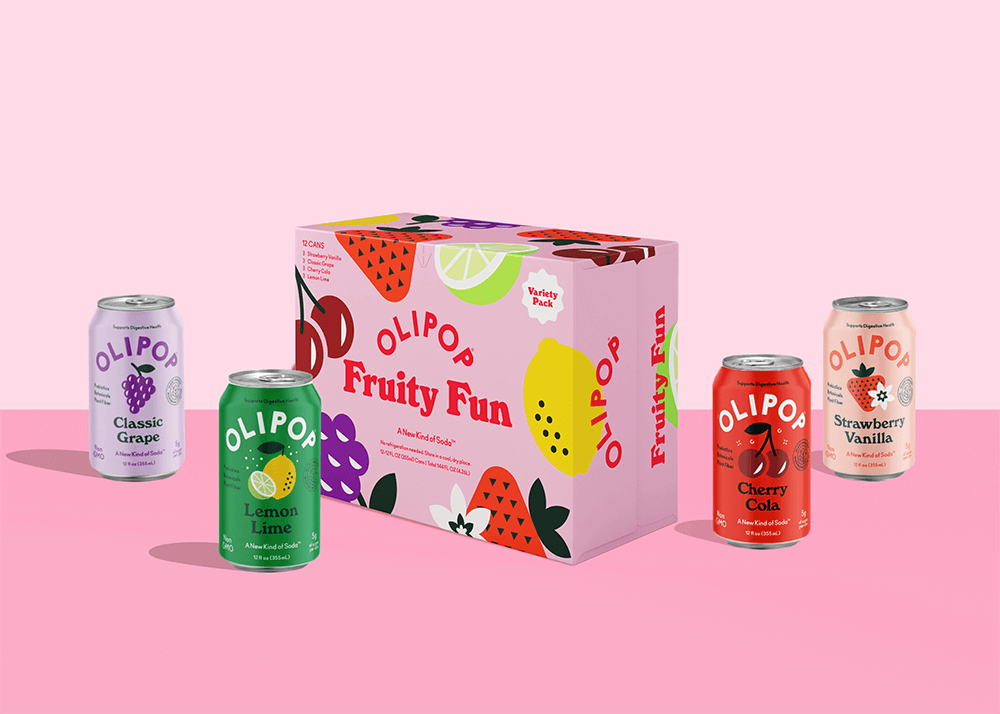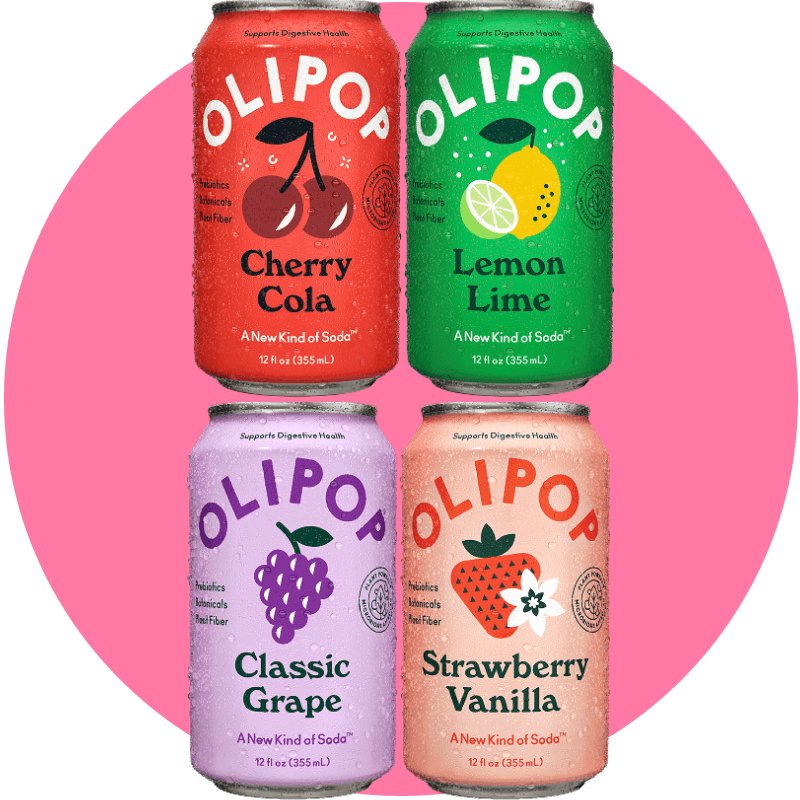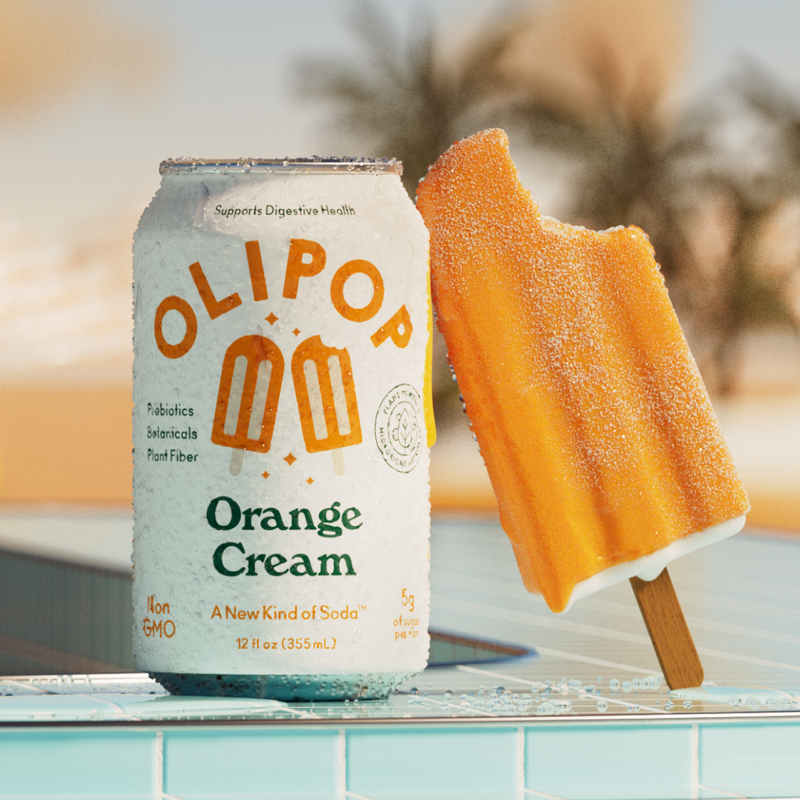Editor's Note: This article is reviewed by Dr. Renee Korczak Ph.D., RDN, CSSD, LD. who is a paid member of the OLIPOP team. She specializes in digestive health and helps review OLIPOP content for scientific accuracy.
Chances are you’re not getting enough fiber. (Hint: The recommended daily intake is 25 to 38 grams daily, yet the average adult only gets around 16 grams).[1] [2] But it’s not your fault! Keeping track of everything you need to live a healthy life can be challenging. That’s why we’re here to help, and to tell you that getting more fiber in your diet can be easy and delicious. Let’s start with: what is fiber anyway?
What Are High Fiber Foods?
Fiber is a non-digestible carbohydrate in plant-based foods that plays a pivotal role in day-to-day health. For example, from scientific literature, we know that fiber plays a role in supporting digestive health, regulating blood sugar levels, decreasing cholesterol levels, and aiding in weight management.[3] [4] [5] [6]
According to the U.S. Department of Agriculture (USDA), a food is “high in fiber” if it has 20% or more of the daily value (DV) of fiber per serving.[7] So, incorporating a variety of high-fiber foods into your daily meals is a simple way to support your health.
Below, we’ll explore ten fiber-filled foods and drinks you can easily add to your diet. Some are considered “high in fiber,” and the others get pretty close! If you want to support your gut health, these fibrous foods are essential for achieving a well-rounded and balanced diet.
1. Lentils
Lentils are a staple in many global cuisines, particularly in soups, stews, and salads, and they pack a fiber punch. A single cup of cooked lentils offers almost 16 grams of fiber—nearly half of the daily recommended intake. Lentils are an excellent source of soluble and insoluble fiber, which helps regulate cholesterol levels and keep your digestive system moving smoothly. They are also rich in protein, iron, and folate, making them a great plant-based option for those looking to reduce their meat consumption. Their earthy flavor and hearty texture make lentils a satisfying addition to a wide range of dishes.
2. Black Beans
Black beans are a nutritional powerhouse offering high fiber and protein content. One cup of cooked black beans provides around 15 grams of fiber, including a substantial amount of resistant starch, which serves as food for beneficial gut bacteria. Black beans are also a great source of plant-based protein, making them ideal for vegetarians and vegans. Their rich, earthy flavor pairs well with various dishes, from soups and salads to tacos and grain bowls.
3. Avocado
Avocados are often celebrated for their healthy fats, but they’re also an excellent source of fiber. A medium-sized avocado contains about 13 grams of fiber, with a good mix of soluble and insoluble fiber. This combination aids digestion, helps maintain blood sugar levels, and supports a healthy gut microbiome by acting as a prebiotic.[8] Avocados are incredibly versatile, and you can use them in everything from salads and sandwiches to smoothies and even baked goods. Their creamy texture and mild flavor make them a perfect addition to savory and sweet dishes alike.
4. Chia Seeds
Chia seeds are the king of fibrous foods. Just one ounce (about two tablespoons) of chia seeds provides 10 grams of fiber, making them one of the most concentrated sources of fiber you can consume. These tiny seeds are incredibly versatile—you can sprinkle them into smoothies, oatmeal, yogurt, or even use them to make a chia pudding. They also absorb liquid, forming a gel-like consistency that can help support digestion and keep you feeling full for longer. In addition to fiber, chia seeds are rich in omega-3 fatty acids, which support heart health, and contain protein, calcium, and magnesium, making them a nutritious choice all around.
5. Raspberries
In the fruit category, raspberries are among the best sources of fiber. One cup of raspberries provides 8 grams of fiber, making them an ideal snack or topping for yogurt, cereal, or desserts. Raspberries are rich in soluble and insoluble fiber, supporting digestion and gut health. They are also packed with antioxidants, particularly vitamin C, which helps strengthen the immune system. Their sweet and tart flavor makes raspberries a delicious and nutritious addition to any meal or snack.
6. Oats
Oats are a classic breakfast choice, but their benefits extend beyond the morning meal. A cup of whole-grain oats contains about 8 grams of fiber, most of which comes from a type of soluble fiber called beta-glucan. Beta-glucan has been shown to reduce bad cholesterol (LDL), help manage blood sugar control, and create feelings of fullness, which can help with weight management. Oats can be enjoyed in many forms—whether as oatmeal, overnight oats, or added to baked goods. For a fiber-packed meal, consider topping your oatmeal with other fibrous foods like berries, nuts, or seeds.
7. Quinoa
Quinoa is often considered a superfood, and for good reason. This ancient grain is fiber-packed, providing about 5 grams per cup of cooked quinoa. It’s also a complete protein, containing all nine essential amino acids, making it an excellent option for plant-based diets. Quinoa is gluten-free, so it’s also a suitable grain alternative for those with gluten sensitivities. Its light, fluffy texture and mild nutty flavor make it an excellent base for salads, grain bowls, and side dishes. The fiber in quinoa supports digestion and can help regulate blood sugar levels.
8. Broccoli
Broccoli is a vegetable that is not only loaded with essential vitamins and minerals but also offers a substantial amount of fiber. One cup of cooked broccoli provides about 5 grams of fiber, most of which is insoluble, helping to keep the digestive tract functioning smoothly. Broccoli is also rich in antioxidants, particularly sulforaphane. Whether steamed, roasted, or sautéed, broccoli is a nutritious side dish, or you can incorporate it into various meals for a fiber and nutrient boost.
9. Sweet Potatoes
Sweet potatoes are not only delicious but also incredibly high in fiber, with a medium-sized sweet potato containing about 4 grams. The fiber in sweet potatoes is mostly insoluble and adds bulk to stool. This may help with occasional constipation. Additionally, sweet potatoes are rich in beta-carotene, an antioxidant that supports eye health and the immune system. Whether baked, roasted, or mashed, sweet potatoes are a versatile and nutrient-dense food that can complement a variety of meals.
10. OLIPOP
Surprise! You can drink fiber in addition to eating it, and OLIPOP is one of the best ways to do that. With 6-9g of fiber in every can, OLIPOP is a great source of prebiotic, soluble fiber from acacia fiber, guar fiber, chicory root, cassava root, and Jerusalem artichoke. With a variety of delicious flavors, OLIPOP has something for everybody, and its tastiness doesn’t come at a price, as every can is high in fiber and contains 2-5g of sugar to support your gut health.
High Fiber Foods: The Takeaway
Incorporating more fibrous foods into your diet doesn’t have to be complicated. In addition to the foods listed above, there are plenty of other fiber-full options, such as flaxseeds, pears, chickpeas, apples, and carrots, that you can easily include in your meals. The key is to aim for a variety of sources, ensuring that you get both soluble and insoluble fibers to reap the full range of health benefits.
Focusing on fiber in your diet can support digestion, heart, and gut health. Start small by adding a few of these fiber-packed foods to your daily routine, and you’ll be well on your way to a healthier, more balanced lifestyle. And don’t forget to try OLIPOP today to start your journey towards a more fiber-filled life.
Sources
- IOM: Institute of Medicine, Food and Nutrition Board. Dietary Reference Intakes: Energy, Carbohydrates, Fiber, Fat, Fatty Acids, Cholesterol, Protein and Amino Acids. Washington, DC: National Academies Press; 2005. [Google Scholar]
- Quagliani, D., & Felt-Gunderson, P. (2015). Closing America’s fiber intake gap. American Journal of Lifestyle Medicine, 11(1), 80–85. https://doi.org/10.1177/1559827615588079
- Barber, T. M., Kabisch, S., Pfeiffer, A. F. H., & Weickert, M. O. (2020). The health benefits of dietary fibre. Nutrients, 12(10), 3209. https://doi.org/10.3390/nu12103209
- Slavin, J. (2013c). Fiber and Prebiotics: Mechanisms and health benefits. Nutrients, 5(4), 1417–1435. https://doi.org/10.3390/nu5041417
- Corliss, J. (2022, August 1). How a fiber-rich diet promotes heart health. Harvard Health. https://www.health.harvard.edu/heart-health/how-a-fiber-rich-diet-promotes-heart-health
- Fiber: the carb that helps you manage diabetes. (2024, May 15). Diabetes. https://www.cdc.gov/diabetes/healthy-eating/fiber-helps-diabetes.html
- U.S. Department of Agriculture. (n.d.). Eye on nutrition: fiber. WIC Works Resource System. https://wicworks.fns.usda.gov/resources/eye-nutrition-fiber
- Thompson, S. V., Bailey, M. A., Taylor, A. M., Kaczmarek, J. L., Mysonhimer, A. R., Edwards, C. G., Reeser, G. E., Burd, N. A., Khan, N. A., & Holscher, H. D. (2020). Avocado Consumption Alters Gastrointestinal Bacteria Abundance and Microbial Metabolite Concentrations among Adults with Overweight or Obesity: A Randomized Controlled Trial. Journal of Nutrition, 151(4), 753–762. https://doi.org/10.1093/jn/nxaa219
- Fiber is a complex carbohydrate found in various plant-based foods like avocados, raspberries, lentils, oats, and more.
- Though it is not digested, fiber is essential to digestion and overall gut health.
- OLIPOP is a better-for-you, functional beverage. Our ingredients include a blend of soluble, prebiotic fibers that help support gut health.


